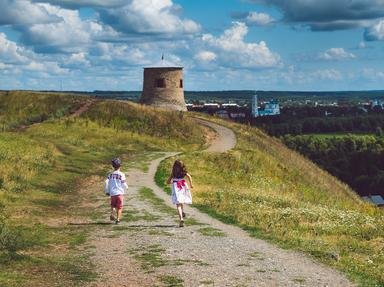Quiz Answer Key and Fun Facts
1. Built a 3,000 mile empire, built cities, spread culture
2. Skilled military leader and political reformer
3. Leader in the Trojan War, greatest Trojan hero
4. Led Hebrews to the reconquest of Canaan
5. Killed Goliath and made Jerusalem his capital
6. Led Jewish revolt against the Seleucids and restored Temple
7. United Britain and fought the Saxons
8. Reunited Roman Empire, spreading Christianity and learning
9. Led First Crusade and ruled the Kingdom of Jerusalem
10. Commanded the French army during the Hundred Years War
Source: Author
ponycargirl
This quiz was reviewed by FunTrivia editor
NatalieW before going online.
Any errors found in FunTrivia content are routinely corrected through our feedback system.
